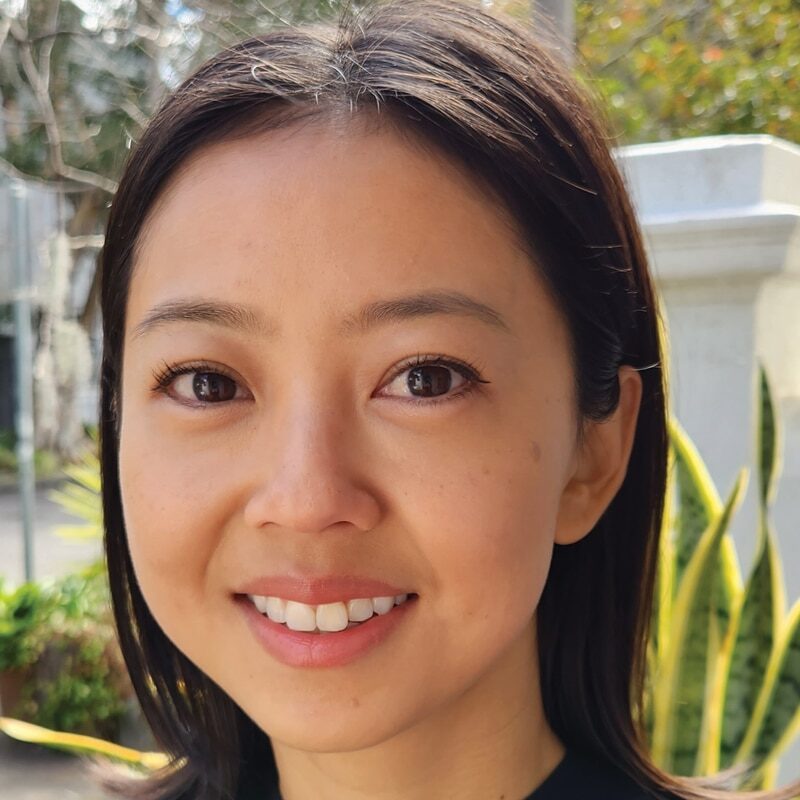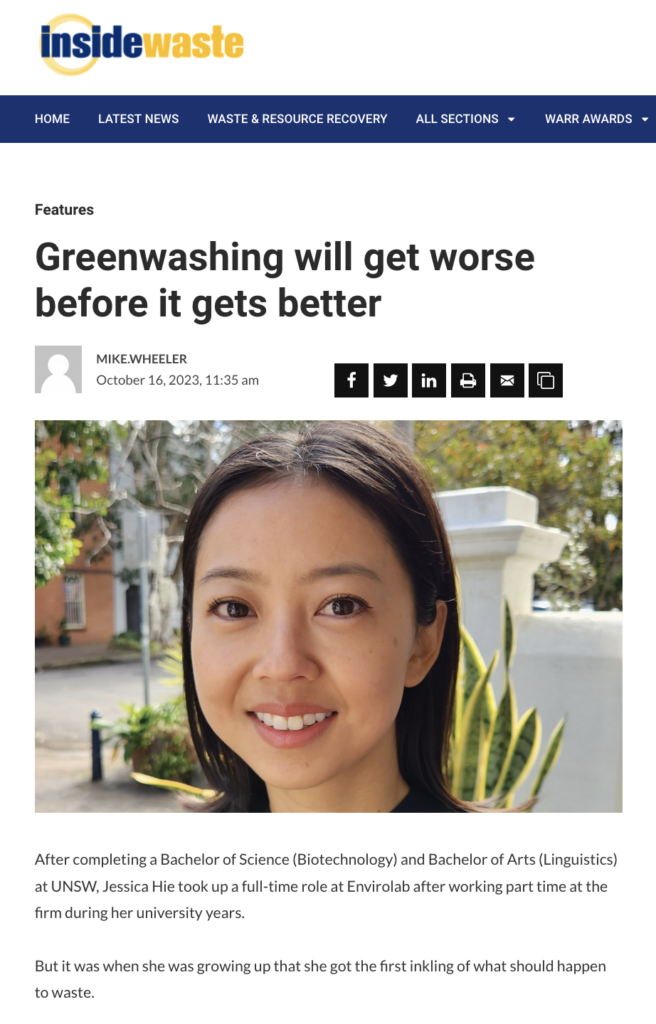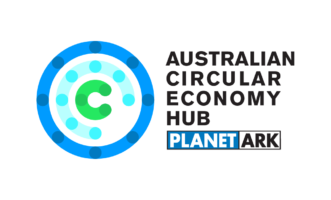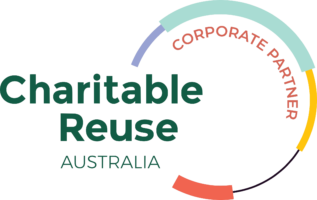Jess profiled by Inside Waste
Article on Inside Waste by Mike Wheeler

After completing a Bachelor of Science (Biotechnology) and Bachelor of Arts (Linguistics) at UNSW, Jessica Hie took up a full-time role at Envirolab after working part time at the firm during her university years.
But it was when she was growing up that she got the first inkling of what should happen to waste.
“My dad was always a reuse and repair sort of guy,” she said. “I remember when he turned a computer chair and a plank of wood into wheelable barbecue table. That’s the sort of behaviour that was modelled to me as a kid. I also never knew people didn’t eat their broccoli stalks. I remember my mum always just peeling the tough part and cutting off that very hard end. There’s a whole lot more broccoli inside the stalk that can be used and which tastes great.”
While not fully ensconced in the waste industry, the work Hie performed at Envirolab gave her a taste of some of the issues faced by companies involved in resource recovery.
“The lab does all sorts of environmental testing – in soil, water and air samples. I had many different roles at the organisation,” she said. “This included asbestos analysis, so I did a lot of microscope work. It was a bit repetitive, but it taught me good lab practice principles and a lot about detailed lab methodologies.”
Hie points out that it wasn’t just analysis-type work she carried out, she also worked in the client services’ department, and then ended up with the business development team. The latter involved managing client relationships in areas such as contaminated land issues and occupational hygiene. And it was while she was working there, that her interest in waste was piqued.
“One part of that job that redirected my attention to waste was testing all sorts of soil that came across our desk at the lab,” she said. “We would get these testing suites that came from these things called ‘resource recovery orders’. At that time, I didn’t know what it was. I remember my boss saying, ‘that’s when they take the excavated soil from one location and re-use it somewhere else’. And I remember just thinking, ‘wow, that’s a fantastic concept’.
Read more: Council pays $110k fine over wastewater spill
“And I just thought that was really cool. Around the same time, at home, I started a worm farm. I got one of those subsidised worm farms from Compost Revolution through my council. I quickly became obsessed with that. I remember that was the point where I started to view my food waste in a different light. It flipped from being a waste to a resource. That was another pivotal moment.”
It was around about this time that Hie started a lot of ‘soul searching’ in deciding where she wanted her career to go. It was during these ruminations that her partner suggested she become a waste consultant. She readily admits that she didn’t even know such a career existed.
“I’d never heard of it before,” she said. “I did some research and I reached out to Mike Ritchie at MRA Consulting. That’s how I got started. That was one year and three months ago.”
Hie started out as an environmental consultant in the Organics Team, which is where she still sits. One of the aspects of the role that she enjoys is the variety of projects she gets to work on. One day she is reviewing lab results for a client that is producing compost, the next she is discussing POEO legislation and looking up what the definition of waste is according to said legislation.
“Just last week I was designing a questionnaire for small businesses, cafes and restaurants, on their attitudes to food waste,” she said. “Earlier this year, I was onsite looking at the catering waste for a major airline. It really is a broad range of projects. Currently, I’m really enjoying the corporate sustainability projects we are working on.”
Hie also enjoys the people she works with.
“There are so many great brains at MRA. It’s a real privilege to have access to so much collective waste knowledge and expertise.”
Tweet
When it comes to the future of the industry, there are a couple of issues that need addressing that are at the forefront of her mind. The avoidance and diversion of organic waste is one of them.
“I feel like we’re really racing against the climate change clock,” she said. “We better start making big moves soon if we want to meet the national target of halving organic waste to landfill by 2030 and its associated GHG emissions.”
A related issue is councils trying to meet their 2030 FOGO targets. Hie thinks there’ll be a lot of teething issues for those councils that are yet to start. Then there’s the 2025 NSW commercial food mandate targeting large commercial food generators. She thinks it’s great that the NSW EPA are setting these mandates. She said that hopefully the industry will get some clear direction around commercial food collections.
Everybody has their pet issues, and Hie is no different. She thinks greenwashing is a big problem that is only going to get worse – whether intentionally or not – as companies start looking for social license proof that they are doing the right thing when it comes to manufacturing a product and dealing with it as its end of life.
“Anyone can put a little green leaf in a circle and then make that into a false sustainability logo,” she said. “And I think that’s really hard for consumers to sift through [what is greenwashing], not to mention being unfair to the businesses that are trying to manufacture genuinely sustainable products. It’s good that the ACCC is starting to investigate and crack down on instances where that is starting to occur.”
Hie is glad she took the advice of her partner and investigated getting a job in the resource recovery and waste industry.
She believes most of Australia is working towards the common goals of waste avoidance and reduction. It’s just a matter of how the issue is approached at all levels of society – by government(s), industry, and the community at large.
“It’s a really exciting space to be in but we’ve just got so much more work to do,” she said.
This article has been published by the following media outlets:




